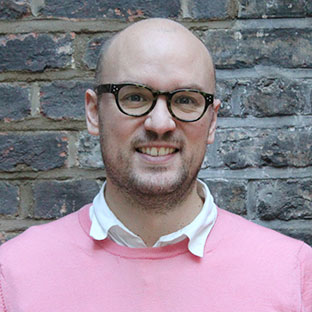Reflecting on the demise of the last art history A Level in English schools, the RSA’s concern isn’t really about the presence of art history in schools, but about how we stop art in schools becoming history.
While AQA’s cutting of the history of art A level is a deeply disappointing decision, I’m doubtful that campaigning for its reversal gets to the real heart of the problem. In any case, the subject has long had a small and socially skewed take-up (80% of schools offering it are fee-paying) and an A Level is not a pre-requisite for any progression onto further study, so is it really worth all the fuss? The real issue is the underlying one: that this development is symptomatic of a general, long-term decline in opportunities for children to study creative subjects (including, but not limited to arts subjects) at all levels.
A lot of recent commentary has suggested that the cut has come as a result of Department for Education thinking that the subject is too soft, but that’s off the mark. In 2014, DfE required exam boards to propose for review and reform all the A Level qualifications they wanted to continue to offer. They were effectively asked to demonstrate the rigour and unique content of qualifications. History of art was proposed and accepted for review. Some subjects (including performing arts and applied art and design, but also pure maths and the joint qualification in economics and business) were refused or were not proposed by the exam boards, mostly because they were deemed to have too much overlap with other qualifications. The reviewed and reformed content of other arts and design-based qualifications has met with the DfE’s requirements and they continue to be offered.
That isn’t to say that the Department now loves arts qualifications - their refusal to include even the reformed arts and design GCSEs into the Ebacc suggests that they do hold a bias against those subjects - but they have still been deemed rigorous enough to continue. There’s no reason to suggest that history of art might not have been able to do the same, if the exam board/s had gone on to undertake the review initially requested. But they did not.
I suspect that the chief reason that AQA chose not to undertake the review (and thereby allow for the possibility that the subject might continue), was the small and shrinking interest from schools to enter students for the qualification. Only 3 FE sixth form colleges in England offered the course this September and in 2014 (the most recent data I have found) only 17 out of 3000+ state schools and 90 fee-paying schools offered the programme. Exam boards have maintained other arts subjects, in spite of the government’s disinterest, largely because their popularity means that they are a viable commercial prospect. The real problem is that declining interest in history of art is a result of declining opportunities to study the arts earlier on and that decline is almost certainly a result of government’s implicit downgrading of those subjects.
In the current context of a schools regime that devalues the arts at all levels of study and a qualifications offer that is subject to the vagaries of the market, I see the RSA’s responsibility, as two-fold:
- To encourage schools to value the arts for their varied benefits to pupils and to society and continue to offer them as part of a broad curriculum, regardless of their instrumental value on learning in other domains
- To develop the evidence base around that instrumental value, so that the case for its retention in schools’ curricula might be made more effectively
With those priorities in mind, we are working on several initiatives:
The RSA Academies Performing Arts Hub is designed to provide evidence and test ideas for how the arts can help schools develop and communicate a sense of mission and purpose that extends beyond the narrow criteria by which they are assessed. To develop this, we are working with arts organisations and various key stakeholders in schools to find ways to integrate arts teaching and learning across the curriculum and the wider life of the school. Schools in the RSA family of Academies have all made an explicit commitment to arts and cultural education, outlining their shared vision in this area.
The RSA Pupil Design Awards exists to bring social design to the classroom and foster understanding of the importance of design in improving lives.
Currently in development is a project with the Education Endowment Foundation and others which will transform the quality of evidence available to schools and cultural sector partners for the impact cultural learning has on attainment. Although it is strong anecdotally, the evidence is unreliable, making the case for retaining it difficult to make. The proposal was included in the DCMS Culture White Paper earlier this year and we hope to have news on that project soon.
Please do contact me on mark.londesborough@rsa.org.uk if you’re keen to be kept informed directly about any of these projects.
Related articles
-
Special educational needs and disabilities and the arts: a creative gathering
Marcello Enea Newman
The third Creative Gathering hosted by the RSA Academies’ Performing Arts Hub in the West Midlands.


Be the first to write a comment
Comments
Please login to post a comment or reply
Don't have an account? Click here to register.